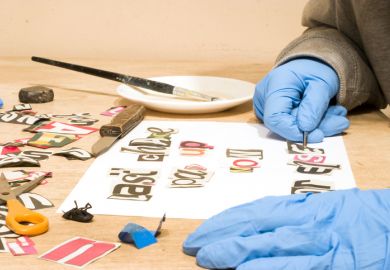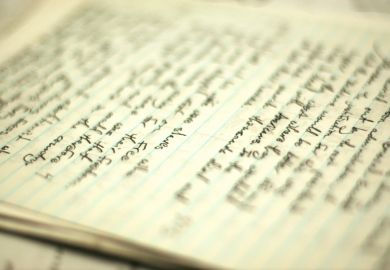Contract cheating vendors could be jailed for two years under draft legislation proposed by the Australian government.
People who profit by taking exams or writing essays on behalf of university students also face fines of up to A$210,000 (£114,000).
The draft law is modelled on New Zealand’s recent move to outlaw contract cheating at universities, informed by advice from Australia’s Higher Education Standards Panel. It would give the higher education regulator, the Tertiary Education Standards and Quality Agency, powers to investigate and prosecute contract cheating services.
TEQSA would also be empowered to seek federal court injunctions to block access to domestic and international websites that promote cheating services, according to education minister Dan Tehan.
“If you write another person’s university essay that’s cheating and you’re ripping off other hard-working students and undermining our world-class education system,” he said.
“We will make contract cheating a crime, sending a very clear message that cheats do not prosper.”
The draft bill was unveiled for consultation on 7 April, with interested parties given until 28 June to provide input. It is among a flurry of reports and proposals released by the government ahead of the federal election, which is expected to be announced within days.
Science minister Karen Andrews also chose 7 April to release a women in STEM strategy, outlining the Liberal-National party coalition’s “enduring vision for an Australian society that provides equal opportunity for all people wanting to learn, work and engage in these fields”.
“The document highlights where government can play a role in supporting increased gender equity across the sector, because we know a broader talent pool will grow the economy and create more jobs,” Ms Andrews said.
“It also highlights how government, industry, the research and education sectors and the community working together can achieve better outcomes for our girls and women, and for all Australians.”
On 6 April, Ms Andrews announced that Australian scientists working on cutting-edge Antarctic research would receive A$50 million in government funding over the next 10 years. A day earlier she launched a discussion paper on the ethics of artificial intelligence, with comments due by 17 May.
On 6 April, Mr Tehan released a 300-page report on free speech in university campuses, penned by eminent judge and University of Western Australia chancellor Robert French. The results of a long-awaited triennial research assessment exercise and a pilot engagement and impact assessment were also released in rapid succession in late March.
Submissions to a number of other reviews – including potentially pivotal inquiries into provider standards, the qualifications framework and a performance funding proposal – were due within the past two months, with final reports not expected until after the election.
It is not clear how much of this work will ever be finished. The opposition Labor party, considered a likely winner of the coming election, has promised once-in-a-generation reviews of both tertiary education and research.
The move to outlaw contract cheating would require amendments to the TEQSA Act, and relies on federal constitutional powers around communication, corporations, trade, commerce, foreign nationals, students and external affairs. The government is working with the states and territories “to ensure any gaps in the coverage of the bill’s provisions can be minimised”, according to an explanatory document.
Register to continue
Why register?
- Registration is free and only takes a moment
- Once registered, you can read 3 articles a month
- Sign up for our newsletter
Subscribe
Or subscribe for unlimited access to:
- Unlimited access to news, views, insights & reviews
- Digital editions
- Digital access to THE’s university and college rankings analysis
Already registered or a current subscriber?




